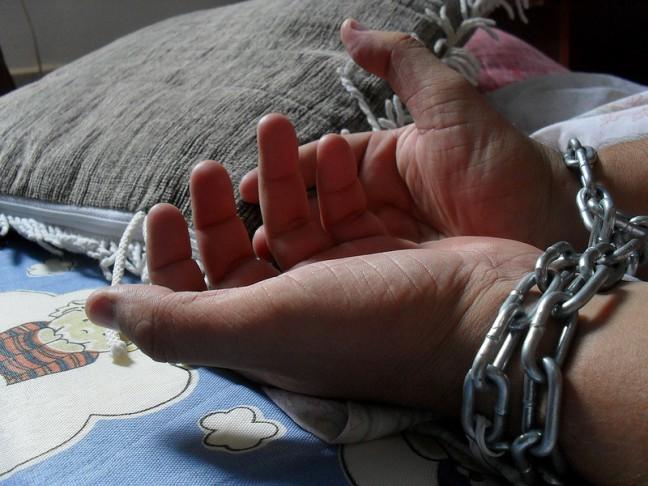A new state bill looks to double down on the state’s growing human trafficking problem by funding new treatment and recovery resources to those affected.
A bill proposed by Reps. LaTonya Johnson, D-Milwaukee, and Joel Kleefisch, R-Oconomowoc, aims to create a place for victims of human trafficking to receive support and help them recover.
The issue of human trafficking is particularly important for Wisconsin, as it is known nationally as a “feeder state” for victims of the illicit human trafficking industry.
Under the current system, victims are typically between the ages of 12 and 14, according to an FBI report. Johnson said these victims are incarcerated when discovered in order to allow them to receive government aid.
“Human trafficking victims are different because they’ve been sexualized,” Johnson said. “They’re dealing with other issues that they don’t typically deal with when you look at their normal foster care population. They’re dealing with STDs, pregnancy, dealing with runaways and issues with a pimp. These children are not a priority for the department.”
The proposed bill would provide for funding to set up treatment centers under the Department of Children and Families for up to 150 victims, which could cost up to $17 million.
Johnson said the money currently confiscated from pimps and human traffickers is relayed to a pool fund, which can contribute to unrelated programs and non-government entities.
“We are passing legislation, but those are legislative changes that don’t require any money be spent whatsoever,” Johnson said. “Until we dedicate money to deal with the human trafficking problem that we have, we’re never going to find a solution until it becomes an epidemic.”
The Bolton Refuge House is an example of a center for victims of human trafficking as a non-profit organization serving Eau Claire, Jackson and Buffalo counties. Its goal is to help women and children recover from abuse and it provides special services for human trafficking victims.
The house has an advocate on duty 24/7 and welcomes victims to call any time for help. They offer services which seek to help victims recover in all aspects of their lives, including emotional support and court representation.
“[Victims] can do a one-to-one action or attend support groups,” house spokesperson Brooke Bonney said. “We help fill out paperwork, and we can go to court with them.”
Although the Bolton Refuge House is among several organizations which support aid for human trafficking victims, Johnson said that in order for the number of victims to decrease, the public must get involved.
Johnson said while it is exceptionally costly to provide these children with the support that they need, taxpayers are indirectly paying for their care in other ways.
“We’re paying for STD treatment, we’re paying mental health counseling, we’re paying to support teenage mothers with unwanted pregnancies and we’re paying because these children are paying for some sort of shelter.” Johnson said. “The only person who isn’t required to pay anything is the trafficker or the pimp.”
A related bill, introduced by Rep. Amy Loudenbeck, R-Clinton, would attempt to help the department deal with victims by offering deferred sentencing to girls who would be incarcerated, takes away the non-consent provision and allows the state to seize trafficker and pimp’s assets.
[Photo by Flickr user Imagens Evangélicas]


